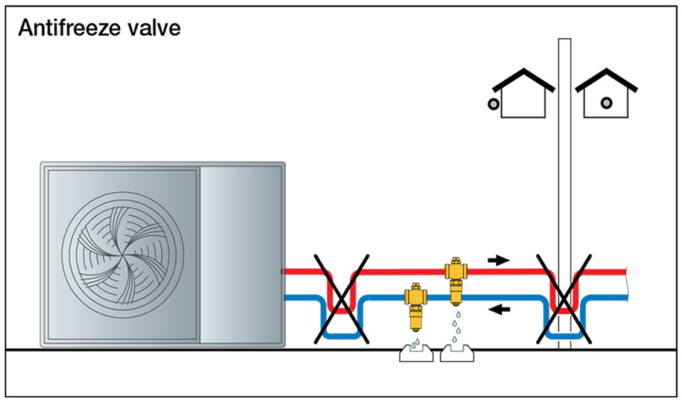What is Freeze Protection Valve?
DESCRIPTION
The antifreeze valve allows the circuit medium to be drained when its temperature reaches an average value of 3 °C. This prevents ice forming in the circuit of a system, generally with a heat pump, avoiding potential damage to the machine and to the pipes.
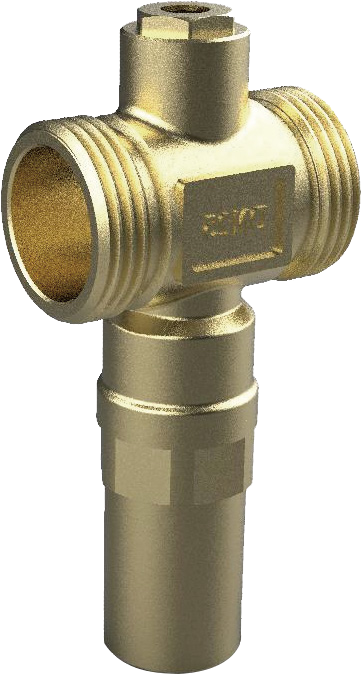
Operating principle
Antifreeze valve
The MT-MS1series antifreeze valve allows drainage of the medium in the circuit when the circuit temperature reaches a value of 3 °C.
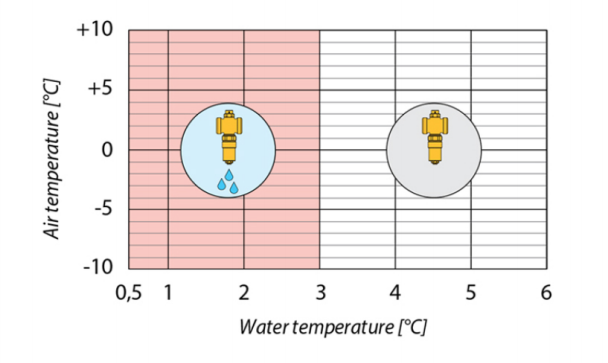
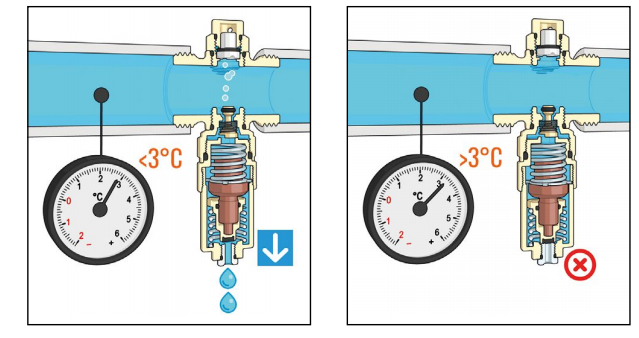
Characteristic components
Antifreeze valve
1. Vacuum breaker
2. Automatic shut-off cock
3.Water temperature sensor cartridge
4.Water temperature sensor
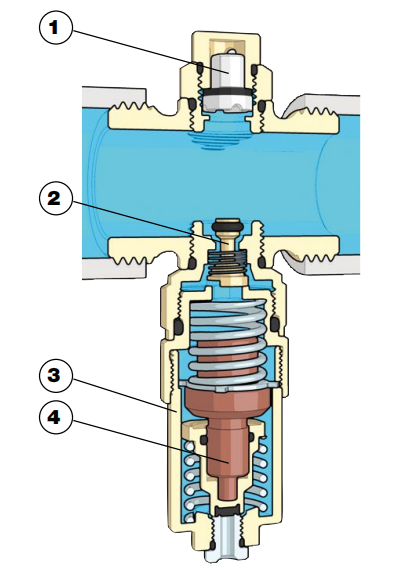
Operating phases
Winter operation in heating mode
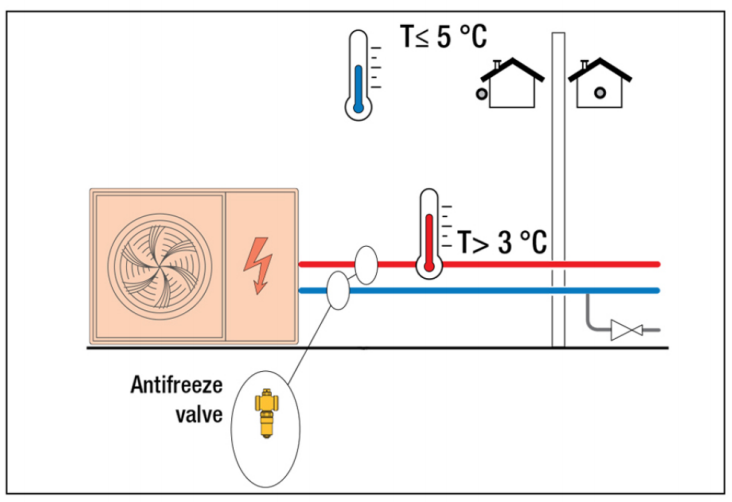
Winter operation in the event of electric supply failure
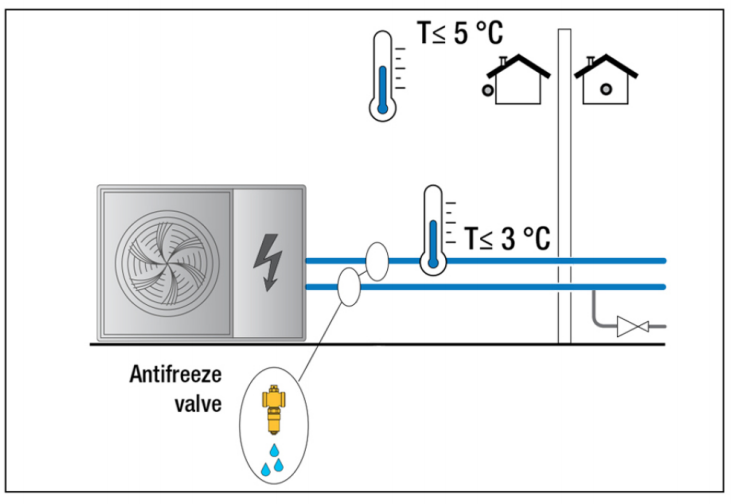
Summer operation in cooling mode
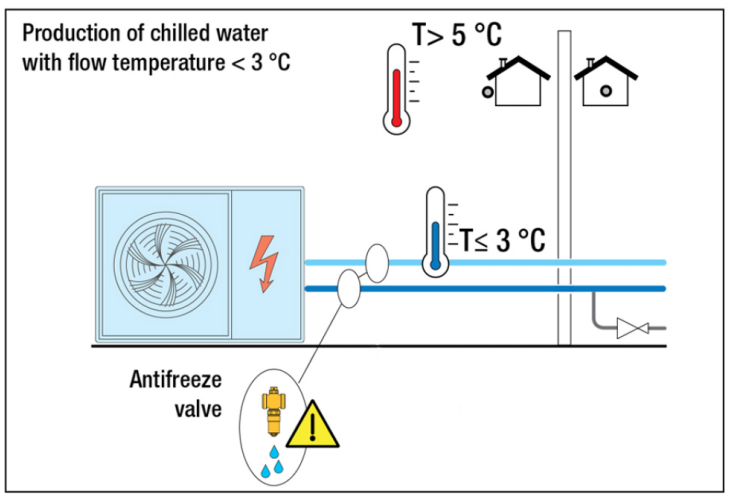
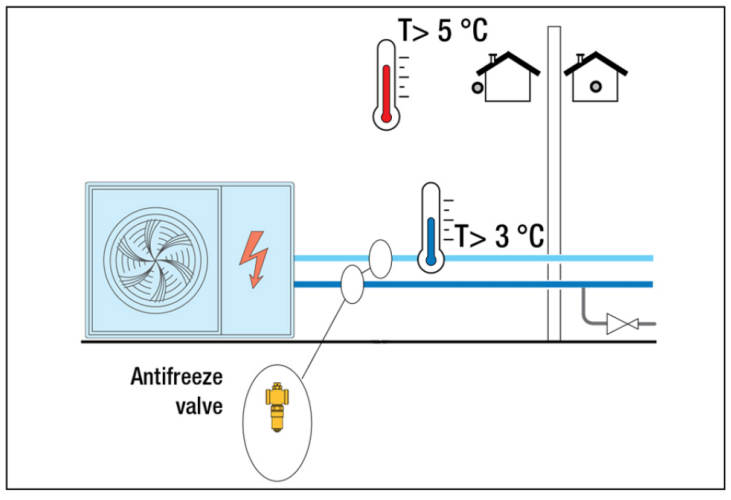
Installation
The device must only be installed in a vertical position, with the outlet facing downwards, to allow the drained water to flow out properly and free from obstructions.
The antifreeze valves must be installed outdoors, where the lowest temperatures can be reached if the heat pump is locked. The antifreeze valves must be positioned well away from sources of heat in order to keep them working properly.
It is recommended to install the antifreeze valves on both pipes (flow and return). Otherwise, water may be left in one pipe which could then freeze.
We recommend always keeping the system pressurised, even while draining, to ensure the antifreeze device works properly.
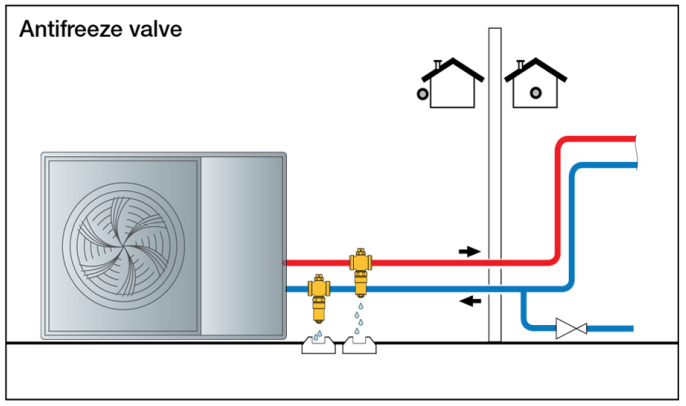
Leave at least 15 cm clearance from the ground (fig. A) to prevent the block of ice which may form below from stopping water from draining from the valve.
Route the drain to a suitable collection point.
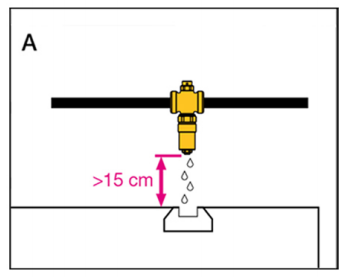
Keep a distance of at least 10 cm between the antifreeze valves (fig. B) and 20 cm between the antifreeze valves and the air sensor (fig.C).
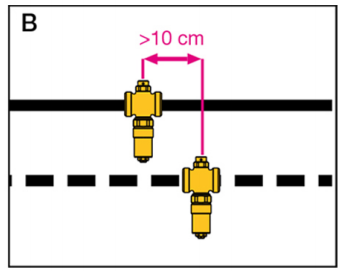
The antifreeze valve must be free of insulation for the system to work properly.
When installed outdoors, the antifreeze valve must be protected from rain, snow and direct sunlight.
Presence of traps
Do not make any trap connections. If the shape of the connection pipe has the potential to create a trap effect (as shown in the following figure), drainage is inhibited and frost protection will no longer be guaranteed.
